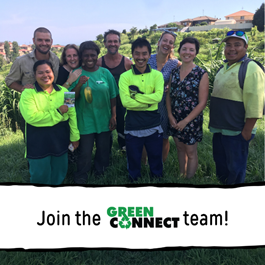
Green Connect was set up in 2011 to create jobs for people who need them most, reduce waste and grow fair food. We wanted to do good things for people and the planet.
If you or someone you know is considering working with us, you probably have some questions about us or how it all works. Here are some of the frequently asked questions. If there is anything we have missed, please email us at [email protected] or call us on 02 4243 1537 and we will find an answer for you.
Who we hire: young people (16-25) of any background and refugees of any age who are finding it hard to get or keep a job.
What we offer: a supportive environment where you can learn new things, meet new people, make mistakes and make a difference.
How it works:
- First you tell us that you want to work at Green Connect (here or by calling us on 02 4243 1537)
- Then we meet with you to talk about Green Connect and you decide whether it’s right for you or not
- Then you do work experience at the Green Connect Farm, where you get to know us and we get to know you, and we find out what you’re good at and interested in as well as things you might need some support with, and we offer on-the-job training. We can also connect you with formal training at the Green Connect farm if you want a Certificate I or II through Kiama Community College.
- Once you show us that you can turn up and pitch in, we’ll offer you paid work – usually in our Gardening and Landscaping team or in our Zero Waste team. You get paid Award wages but still work in a really supportive team and we can make adjustments and help you along the way if things don’t quite go to plan
- Once you show us that you can turn up on time, in the right clothes and personal protective equipment, follow instructions, work in a team, stay on task, work safely, communicate well with your teammates and supervisor (all skills you need in any workplace), you’ll get offered even more paid work in our Staffing Solutions team. That’s where you get to try out different jobs in different businesses and industries and learn what you’re good at and interested in. They’re on other people’s sites and not with supportive Green Connect supervisors and managers, but we’ll still be there for you, booking shifts and helping sort out any challenges you have (like working for someone you don’t like, or if mistakes happen)
- At that point you’ll have lots of skills, experience and confidence, you’ll know what kind of work you want to do, you’ll have the employment skills to make any employer want you in their team, and you’ll have some great references from Green Connect. We can also help with job applications or getting ready for an interview if you need it.
Download our employment model diagram here.
Frequently asked questions
Who do you hire and why?
We hire young people (16-25) of any background and former refugees of any age.
The unemployment rate is surprisingly high in the Illawarra, and it affects some groups more than others. We hire young people and former refugees because they are the two groups with the highest unemployment rates in our region.
We continue to find that great things happen when young people and former refugees work side by side too. Young people bring English language and teach the refugee staff about Australian culture and customs. Former refugees are generally really hard-working and bring stories of hardship that make us all appreciate what we have got.
What kind of support do you offer?
We are all different, and so our challenges are different. Green Connect doesn’t have a “one size fits all” program – we simply offer a safe, welcoming space for everyone and if you turn up and pitch in, we will back you.
Things we have been able to help some of our staff work out, get professional help with or get through in the past includes things like:
- Talking to Centrelink or accessing government support they didn’t know was there
- Finding somewhere to live
- Tackling mental health challenges
- Tackling physical health challenges
- Managing difficult situations with family or friends
- Making decisions about alcohol, cigarettes or drug use
- Improving communication skills
- Understanding their rights at work
- Getting a bank account, tax file number and superannuation fund
- Working with someone they didn’t like
- Getting a drivers licence or a car
- Writing job applications
- Convincing an employer to give them a chance
- Getting work clothes, boots and more
- Talking to their jobactive providers
- Connecting with other people in the community
What kind of work do you offer and how many hours per week is it?
We do lots of different work including:
- Working in people’s home gardens (digging, pruning, weeding, mulching, planting, etc)
- Maintaining commercial gardens (mowing, pruning, weeding, mulching, tidying, etc)
- Planting big areas along roads or railway lines (planting, watering, mulching, etc)
- Picking up litter
- Picking rubbish out of compost
- Moving furniture or other big items
- Sorting rubbish into compost, recycling and landfill
- Cleaning out offices or homes that people have moved out of
- Cleaning homes and offices
We offer the work to the staff who can do the work (starting with the person who has earned the least so far, to spread the work around fairly) and you decide if you want to or not. So it can be a lot of work if you want to and you can do the work (e.g. for some sites you have to do a site induction first; for some work you need to be able to lift heavy items, or have a drivers license, or have learned how to prune certain types of trees, etc), or it can be very little work if you’re just starting paid work (so that you get used to working and build your strength and confidence) or you don’t want to work that week or do those jobs. If you’re not ready for paid work or if we are sorting through some issues with you (e.g. if you didn’t turn up to a couple of shifts) then we won’t offer you more shifts until we have talked with you and know why it happened and how we can be sure it won’t happen again.
How much will I get paid?
We pay Award wages (including 25% loading) and we tell you when we offer you the work what the Award level is and how much you will get paid. Here are some examples as at September 2021:
- Cleaning work during the week = Cleaning Award Level 1 = $26.48/hour
- Gardening and landscaping work during the week = Gardening and Landscaping Award Level 2 = $26.49/hour
- Litterpicking during the week = Waste Management Award Level 1 = $29.44/hour
- Cleaning work on a Saturday = Cleaning Award Level 1 = $37.07/hour
- Litterpicking on a public holiday = Waste Management Award Level 1, public holiday rate = $64.76/hour
We also pay you any allowances and superannuation if you are entitled to them.
What do I have to do to get paid work?
Register with us, meet with us and come and do at least three shifts of work experience at the Green Connect farm (or occasionally in the Green Connect op shop).
Why is the work experience part unpaid? Isn’t that unethical?
We have been working with young people and former refugees with barriers to employment (things going on that mean it’s hard to get and keep a job) for more than 10 years and we have tried lots of different ways of getting to know each person, finding out what they’re good at and like, and finding out what support they need. We know that the best way to do that is to work alongside each other.
By coming and doing some work experience at the Green Connect farm, you get to learn some new skills, meet some new people, try new things, make mistakes and make a difference. You’re also showing that you can turn up and pitch in. And you get to know a bit about us and how we work.
We don’t think it’s unethical for a few reasons:
- Most people who do it get a lot out of it
- We don’t get anything out of it. We have figured out that we could either pay a farm supervisor to do a day’s work, or we could pay a farm supervisor to train and mentor a group of potential new staff doing work experience, and the same amount of work gets done. So it is the same to us whether we have people doing work experience or not, but we’re helping people to start their employment journey.
- In other programs you pay to do the kind of training that we offer people for free
What if I don’t like working with you?
If you don’t like working with us, that’s OK. You can leave anytime. We would really like it if you could tell us that you don’t want to work with us anymore, and if possible, why, but you don’t have to.
You can also decide it is not for you and change your mind later and come back.
Do you ever kick people out of your program?
Over the past 10 years, we have employed more than 500 young people and former refugees. There are only four people who have been asked not to come back, and all four were because of serious performance issues and after several conversations with them about it.
We work really hard to make sure our sites are safe and welcoming for everyone, so you do have to contribute to that by not doing anything unsafe or unwelcoming. But in general, we know that there will be some difficult times along the way and some people will make mistakes, and we’ll work through them with you so that we both understand why they happened and have a plan to make sure they don’t happen again.
What if I have a disability?
We are not a disability employment services provider and we don’t specifically recruit people with disabilities, but some young people and former refugees who come to us do have a disability and wherever we can, we’ll find a way to accommodate it.
Does it matter if I do or don’t have a jobactive provider?
No, it doesn’t matter to us. If you do have a jobactive provider, they may be able to help pay for things that will help you to get and keep a job, like driving lessons, paying for public transport, or buying work boots and other personal protective equipment. But as long as you are a young person (16-25) or a former refugee (of any age) and are having trouble getting or keeping a job, you’re welcome to join our team.
I’m a university student. Can I still work for you?
Our program is aimed at young people and former refugees with multiple and complex barriers to employment – people who might struggle to get a job somewhere else and need a supportive workplace where they can build their skills, experience and confidence. If that is you and you’re happy to go through the program as outlined above, starting with onboarding and work experience, you’re welcome to apply for a job with us. If you’re not sure, please call us on 02 4243 1537 or email [email protected] and we can have a chat about whether it’s the right fit.
We also offer internships from time to time, generally through the University of Wollongong, or you can volunteer for us. That may be more appropriate if you’re looking to gain employment experience but not as part of a supported employment program.
I’m ready for work straight away and don’t want to do the work experience. Can I still work for you?
The short answer is no. Green Connect exists to create jobs for young people and former refugees who might otherwise not get a job, or for whom it is hard to get and keep a job. If you’re employment-ready and don’t want to do the work experience, then our program is probably not for you.
I want to be a supervisor or a manager, not a supported employee. How do I apply for a job like that?
From time to time we recruit supervisors or managers, if we don’t have a staff member who has come through our employment program who is suited to and ready for the role. We advertise those roles on our social media channels and through our newsletter. You can subscribe to our newsletter at the bottom of our website or by sending an email to [email protected].
How many people do you employ?
At any given time we generally employ around 100 people – currently 17 permanent staff (seven of whom started as supported employees) and about 80 casual staff.
How do I get a permanent job?
Most of the work that we do (gardening and landscaping, zero waste and staffing solutions especially) depends on customers booking us to do different jobs and they change all the time. Unfortunately this means that most of the work that we do is casual.
We currently have 17 permanent roles and this has increased as we have grown. When we have a permanent job to offer, we look at our current staff and volunteers first and if there is someone who is the perfect fit then we will offer them the job. If we don’t have the perfect person, we will advertise via social media and our newsletter to see if any of our staff, volunteers or supporters want to apply and would be suitable for the job. And if we don’t find the right person or the role is so specialised we don’t think we will find the right person easily, we will advertise on platforms like EthicalJobs or SEEK.
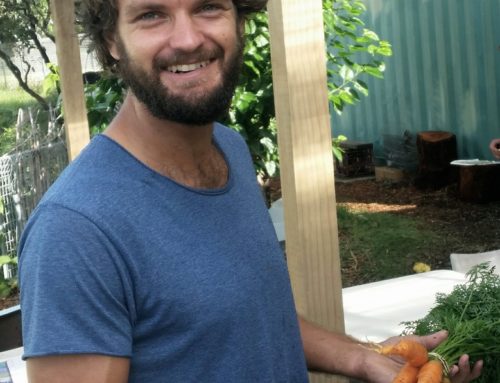
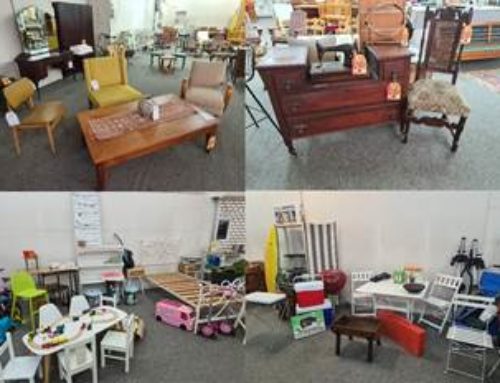
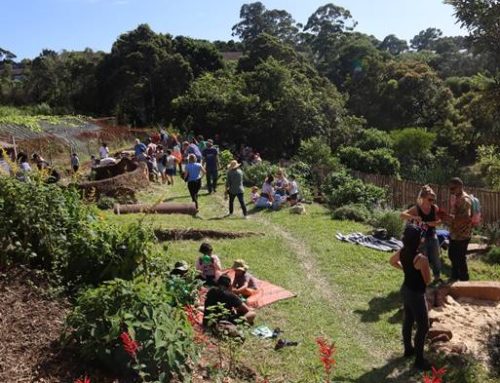
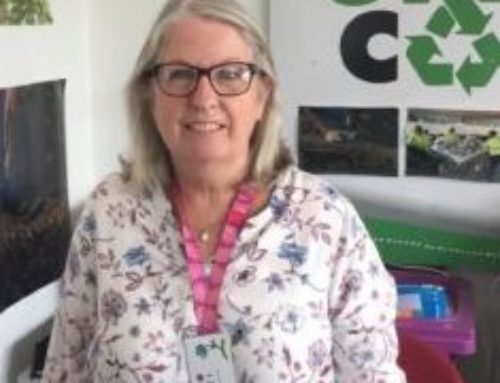
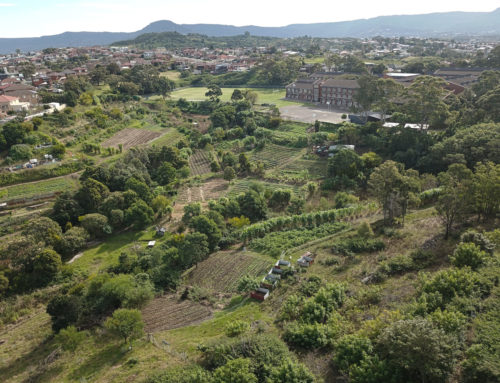
Leave A Comment
You must be logged in to post a comment.